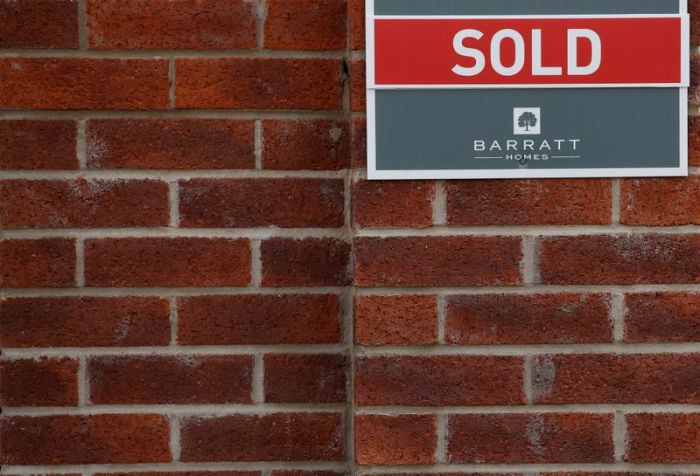MINSK (Reuters) – Alexander Lukashenko, the leader of Belarus, said on Monday he would be ready to hold new elections and hand over power after a constitutional referendum, an attempt to pacify mass protests and strikes that pose the biggest challenge yet to his rule.
He made the offer, which he insisted would not be delivered on while he was under pressure from protesters, after exiled opposition politician Sviatlana Tsikhanouskaya said she was willing to lead the country.
In a sign of his growing vulnerability, Lukashenko faced heckling and chants of “step down” during a speech to workers at one of the large state-run factories that are the pride of his Soviet-style economic model and core support base.
He faces the threat of European Union sanctions after a bloody crackdown on protests following what demonstrators say was his rigged re-election victory last week. He cites official results that gave him just over 80% of the vote.
Officials in Washington and the EU want Russia not to meddle in what President Donald Trump called a “terrible situation”, after Moscow told Lukashenko it was ready to provide military help against an external threat.
Russia is watching closely as Belarus hosts pipelines that carry Russian energy exports to the West and is viewed by Moscow as a buffer zone against NATO. Lukashenko and Russian President Vladimir Putin spoke twice this weekend.
A burly former Soviet collective farm manager, Lukashenko used blunt language while speaking to workers on Monday.
“We’ve held elections,” he said. “Until you’ve killed me there won’t be any new elections.”
But he offered to change the constitution, an apparent concession that seems unlikely to satisfy protesters who say it’s something he has spoken about before.
“We’ll put the changes to a referendum, and I’ll hand over my constitutional powers. But not under pressure or because of the street,” Lukashenko said, in remarks quoted by the official Belta news agency.
“Yes, I’m not a saint. You know my harsh side. I’m not eternal. But if you drag down the first president you’ll drag down neighbouring countries and all the rest.”
He also said people could hold parliamentary and presidential elections after the referendum if that was what they wanted.
VIDEO ADDRESS
Speaking in a video address from Lithuania, opposition politician Tsikhanouskaya urged security and law enforcement officers to switch sides.
“I am ready to take responsibility and act as a national leader during this period,” Tsikhanouskaya said.
The first leader of independent Belarus Stanislav Shushkevich told Reuters the military and Lukashenko’s inner circle could stay loyal and were “handsomely paid”.
Tsikhanouskaya’s video was released as hundreds of employees from the state broadcaster BT went on strike, as several presenters and staff publicly resigned in solidarity with the protesters.
The strike came as protests spread to those normally seen as loyal to the 65-year-old president. Some police, a sitting ambassador, prominent athletes and a former prime minister have also voiced solidarity with the protesters.
The state broadcaster showed re-runs on Monday morning before issuing a fresh news bulletin. Videos on social media suggested BT had at one point aired footage of an empty studio with white sofas, and music playing.
Reuters could not independently confirm that and the broadcaster could not immediately be reached for comment.
Factory workers waving flags and posters joined protesters to rally outside the building, which was being guarded by security forces.
“We want to work honestly, we do not want to be forced to lie,” TV host Oleg Titkov told Reuters.
Thousands of protesters had earlier marched to a factory where Lukashenko flew by helicopter to speak to striking workers. He got a rough reception.
“Thanks, I’ve said everything. You can (continue to) shout ‘step down,'” he said, struggling to be heard.
He then walked away as the crowd chanted “Step down”.
Media outlet Tut.By showed footage of Lukashenko confronting one worker, saying “I will not beat you up” before adding “if somebody provokes something here, we will sort it out in a hard way. So, man up.”
Strike action hit Belaruskali, one of the world’s largest potash producers, partly shutting production, Russia’s TASS news agency cited a local trade union as saying. The state-owned firm, a key source of dollar revenue for Belarus, said its plant was still working.
In the evening, thousands marched to the Okrestina detention facility where protesters were kept last week and complained of beatings, cramped conditions and starvation rations. The government denies abuse.
Lukashenko said he had received a phone call from German Chancellor Angela Merkel: “Yesterday Merkel called, ‘I want to talk,'” Interfax news agency quoted him as saying. However, the German government said no conversation had taken place between the two leaders since the Aug. 9 election.
(Reporting by Andrei Makhovsky in Minsk, Vladimir Soldatkin, Maxim Rodionov and Tom Balmforth in Moscow and Kate Holton in London; writing by Matthias Williams; Editing by Andrew Osborn, Giles Elgood and Peter Graff)





























